Select language
Select language
CareOregon has been partnering with local farmers to provide Community Supported Agriculture (CSA) shares for its members since 2016 to improve individual and community health. This year, it is honored to welcome Mudbone Grown to its family of farmers.
Mudbone Grown: Feed'em Freedom Farm, one of the only Black-owned farms in our region, was co-founded by couple Shantae Johnson and Arthur Shavers in 2015. Their mission is to promote inter-generational community-based farming that aims to enhance food security for BIPOC individuals, create opportunities for Black farmers and improve community health.
A total of 100 shares from Mudbone Grown will be distributed to individuals and families served by the North by Northeast Community Health Center, Wallace Medical Clinic and the CareOregon Boys and Girls Club at Rockwood. These locations were chosen because they serve a large number of individuals who identify as Black, Indigenous or people of color.
“Launching this new CSA partnership with Mudbone Grown is an opportunity for us to prioritize providing food access to BIPOC individuals in Portland. This partnership is a step closer to helping ensure health equity by targeting food insecurity and needs to access fresh foods,” said Jen Martinek, CareOregon strategic business partnerships manager.
The CSA partnership launches the last weekend of June. From week to week, CSA members should expect a variety of produce in their shares: kale, collard greens, onions, beets, carrots, broccoli, turnips, bush beans, black eyed peas, winter squash, strawberries, chives, herbs, tomatoes, watermelon, okra, eggplants and lettuce.
“This partnership will serve BIPOC families, but most importantly it will serve food insecure families that have chronic health issues that need to have access to good nutritious food,” said Shantae Johnson, Mudbone Grown co-founder. “I think that partnerships like this help to bridge the gap and also help support the local food systems by investing in Black farmers, investing in community and supporting our local healthcare system.”
View the photos below to learn more about Mudbone Grown and how they are using their family farm to tackle systemic oppression and build a stronger region.
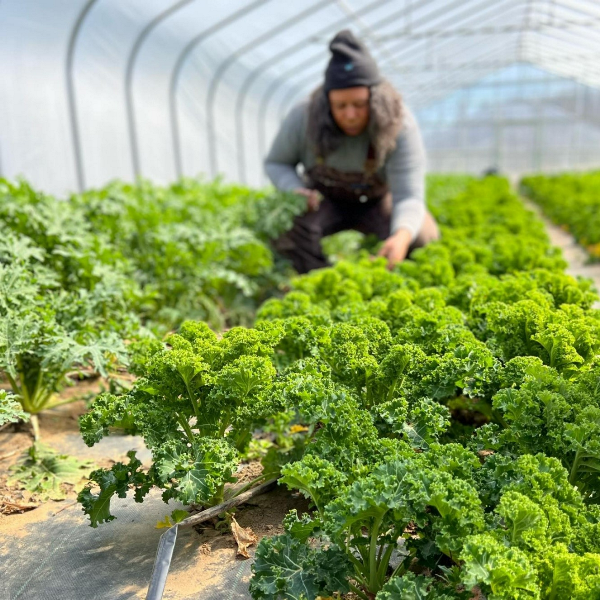
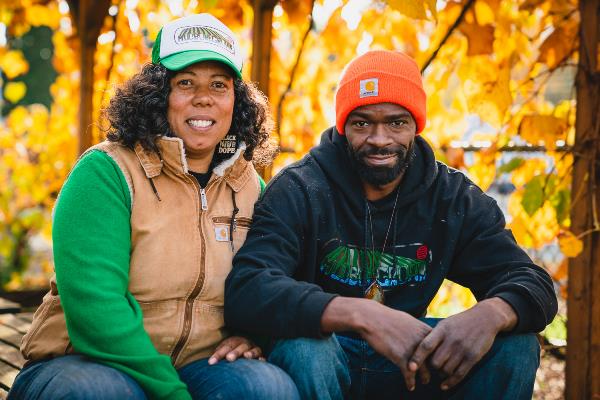
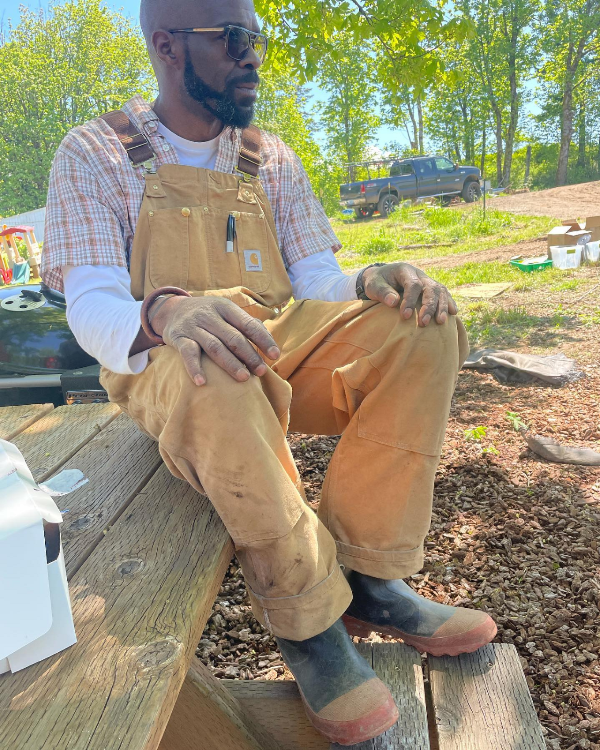
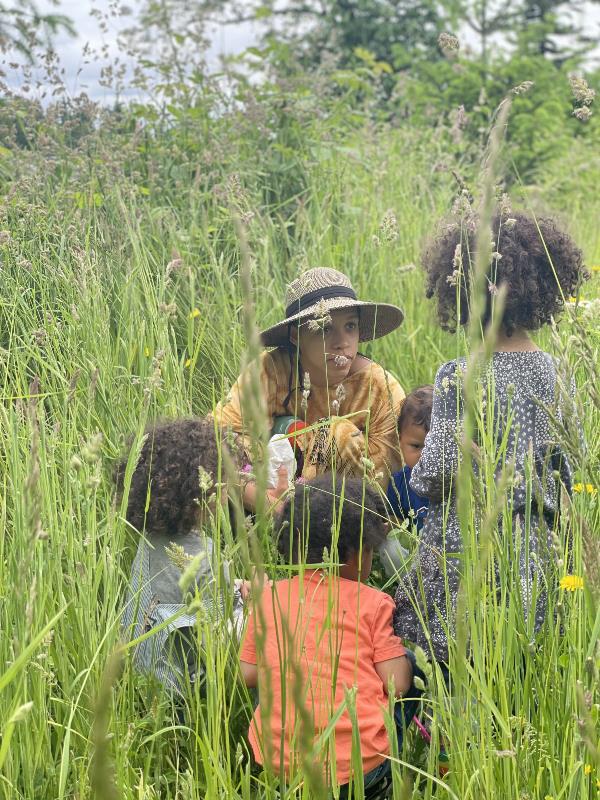
In 2015, the two founders, with their six children, set out on a quest to return to the land that feeds by starting their own farm and taking what they learned about growing food from their families, grandfathers and grandmothers. The result: Black family farmers helping create food sovereignty in BIPOC communities.
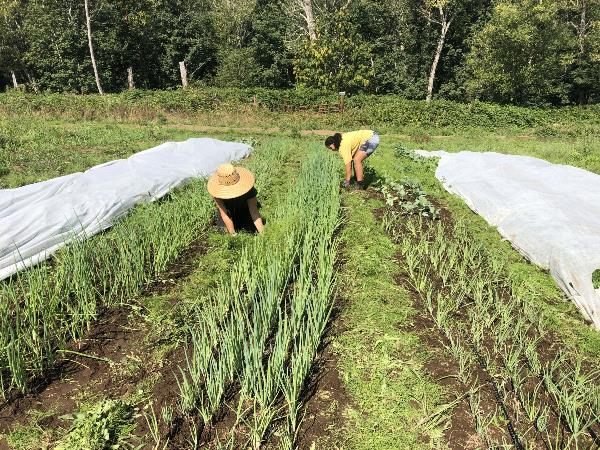
After completing Oregon State University’s Beginning Urban Farming Apprenticeship Program, they began partnering with community farms like Arbor Lodge Farms and Zenger Farm, securing a plot of land for stewarding. In 2018, Mudbone Grown moved to a 19-acre property near Corbett and have lived there ever since.
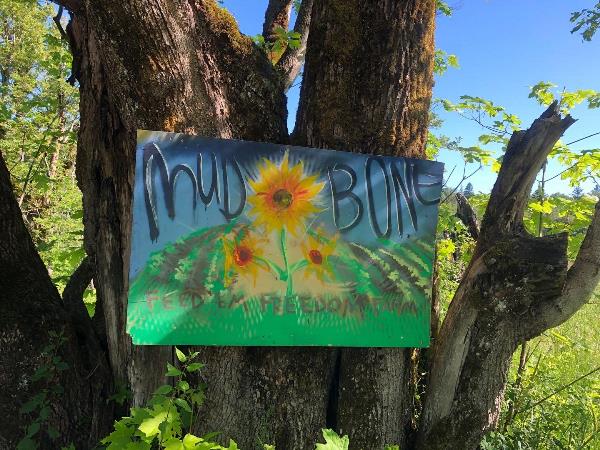
Fun fact: Mudbone Grown the name was inspired by Co-founder Arthur Shavers.
“Arthur was this country kid running around Northeast Portland with a fur cap,” Johnson said. “His friend used to call him Mudbone.”
When the same friend came to visit their farm years later, he called it Mudbone Grown, and that’s what it became.
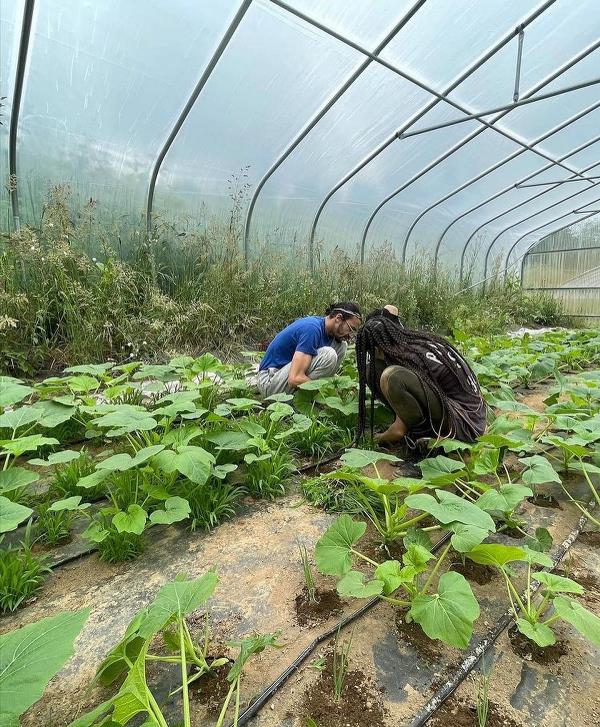
Over the years, Mudbone Grown created three agricultural training programs: A Farmers of Color training program for BIPOC farmers; Boots to Roots program to help teach veterans how to farm; and Pathways to Farming program, a three-year program training BIPOC individuals on how to create agricultural businesses.
“It’s important for the community to see Black farmers growing and Black farmers serving community,” Johnson said. “There’s been a history of exclusion in the state when it comes to agriculture for Black farmers and it’s very important that Black farmers are given the opportunity and the resources to be able to serve.”
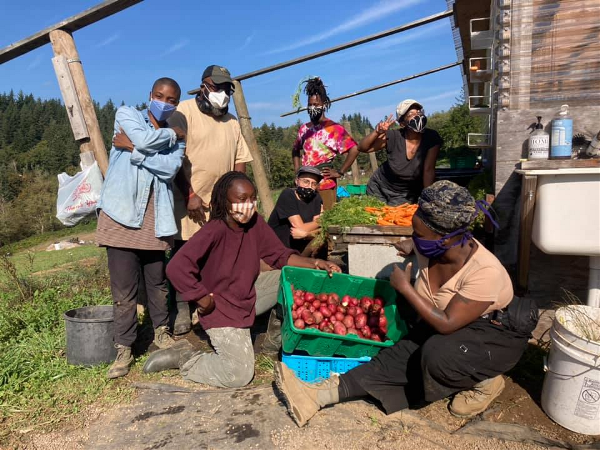
Over the years, Mudbone Grown has partnered with several organizations like Black Oregon Land Trust (BOLT) and Black Food Fund to continue creating opportunities for Black farmers and Black-led food transformation while working to dismantle the racist systems in place that have disadvantaged and disfranchised Black communities.
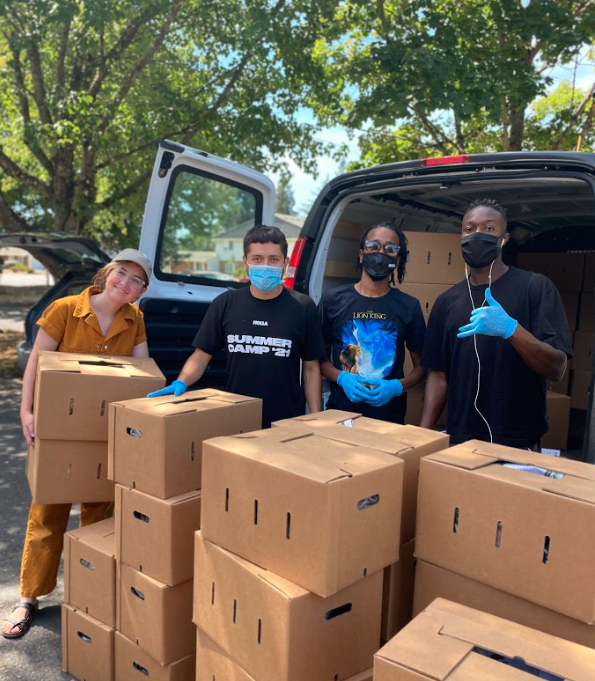
Mudbone Grown is equally dedicated to enhancing food security in low-income communities and improving community health and well-being through partnerships like the CSA partnership with CareOregon.
“Partnership is important for the community because of food access in general,” Johnson said. “We can see the prices of food skyrocket. Families are not able to afford the escalating prices of groceries. Families are not able to afford the prices of organic, fresh, home-grown produce.”
CSA partnerships like this increase access to healthy food, promote sustainability and help eliminate food deserts.
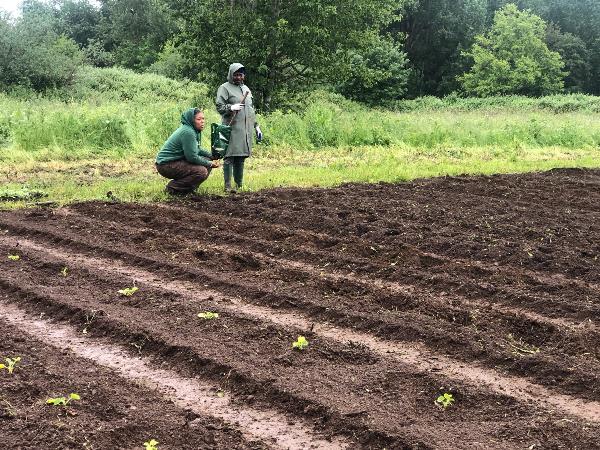
In preparation for the season’s CSA launch, this year’s harvest proved to be a difficult one for Mudbone Grown and other farms. The April snowstorm and consistent rainfall drenched the soil and delayed planting. Seeds planted in these conditions could potentially rot in the soil with excess water washing away the nutrients the plants need to thrive.
“There is little we can do, mother nature is in control, we are not in control,” Johnson said. “All we can do is try to treat the earth with reverence and take care of it a little more than we’re doing on a global scale.”
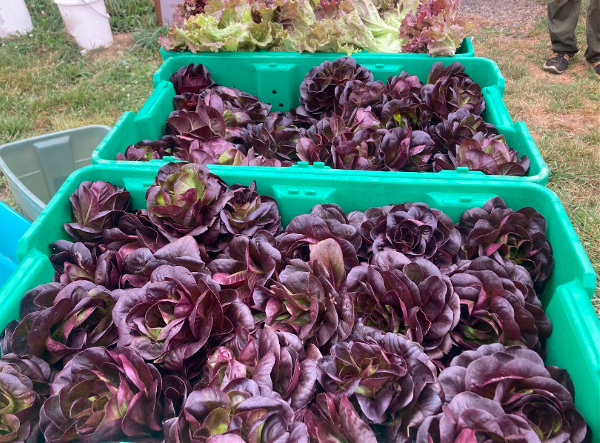
For this year’s CSA partnership, it’s going to be mostly leafy greens and cooler weather crops. CSA members should expect a variety of produce in their shares: collard greens, kale, onions, beets, carrots, broccoli, turnips, bush beans, black eyed peas, winter squash, strawberries, chives, herbs, tomatoes, watermelon, okra, eggplants and lettuce.
The CSA partnership with Mudbone Grown, Wallace Medical Clinic, North by Northeast Community Health Center and CareOregon Boys and Girls Club in Rockwood launches the last weekend of June.
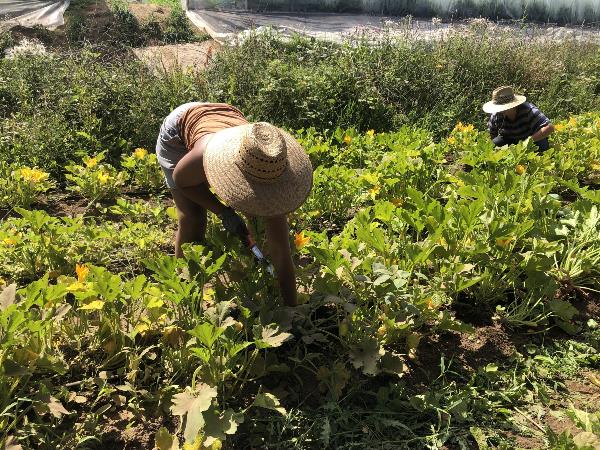
“It’s important for us to share and bring people along the journey with us,” Johnson said. “We’re not the only one across the nation returning back to the land. We can see some amazing movement across the East Coast and across the nation of Black farmers, African farmers, indigenous farmers, POC farmers doing some amazing work. We love working with our hands, with community, feeding community because that’s what our grandmothers did.”
“You never really know how planting one little seed can ripple out.”
Website feedback
Help us improve our website
Having trouble finding what you’re looking for? Want to tell us about your website experience? Take our feedback survey and let us know!